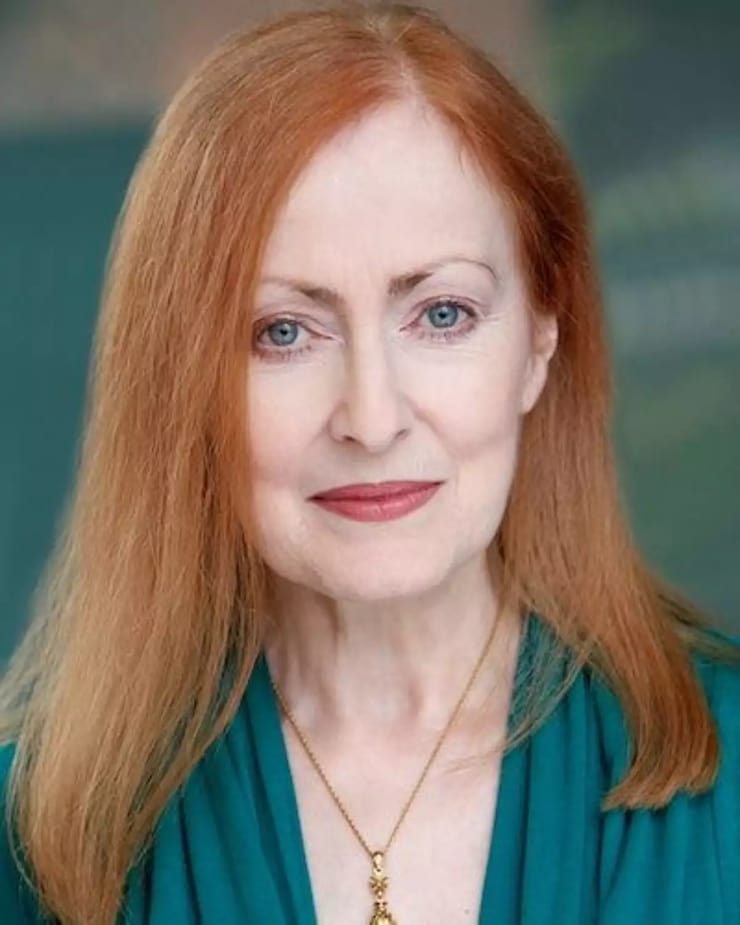Who is Pauline Moran?
Pauline Moran is an Irish Fianna Fil politician who has served as a Teachta Dla (TD) for the Dublin South-West constituency since 2011.
Moran was born in Dublin in 1963. She was educated at University College Dublin, where she studied economics and politics. After graduating, she worked as a researcher for the Economic and Social Research Institute.
Read also:Explore The Enigmatic Malaya Ukraine A Hidden Gem In Eastern Europe
Moran entered politics in 2004, when she was elected to Dublin City Council. She served on the council for seven years, during which time she held a number of positions, including Lord Mayor of Dublin.
In 2011, Moran was elected to the Dil. She has since served as a member of the Oireachtas Committee on Finance, Public Expenditure and Reform, and the Oireachtas Joint Committee on European Affairs.
Moran is a member of the Fianna Fil party. She is a strong supporter of social justice and equality. She has also been a vocal critic of the government's austerity policies.
Moran is married with two children.
Pauline Moran
Pauline Moran is an Irish Fianna Fil politician who has served as a Teachta Dla (TD) for the Dublin South-West constituency since 2011.
- Politician
- Fianna Fil
- Dublin South-West
- Social justice
- Equality
- Austerity
Moran is a strong supporter of social justice and equality. She has also been a vocal critic of the government's austerity policies. She is a member of the Fianna Fil party.
Read also:Behold The Incredible Transformation The Nanny Cast Then And Now
1. Politician
A politician is a person who has political power in the government of a state, a person active in party politics, or a person holding or seeking an elected office in government.
Pauline Moran is a politician. She is a member of the Fianna Fil party and has served as a Teachta Dla (TD) for the Dublin South-West constituency since 2011. She is a strong supporter of social justice and equality and has been a vocal critic of the government's austerity policies.
The connection between "politician" and "Pauline Moran" is that Pauline Moran is a politician. She is a member of the Fianna Fil party and has served as a Teachta Dla (TD) for the Dublin South-West constituency since 2011. She is a strong supporter of social justice and equality and has been a vocal critic of the government's austerity policies.
2. Fianna Fil
Fianna Fil is a political party in the Republic of Ireland. It is the largest party in the Dil, and has been the dominant party in Irish politics since its foundation in 1926.
Pauline Moran is a member of Fianna Fil. She has served as a Teachta Dla (TD) for the Dublin South-West constituency since 2011.
The connection between Fianna Fil and Pauline Moran is that she is a member of the party. Fianna Fil is a center-right party that supports social justice and equality. Moran is a strong supporter of these principles, and she has been a vocal critic of the government's austerity policies.
Moran's membership in Fianna Fil has helped her to advance her political career. She has served on a number of important committees, and she is a member of the party's front bench. She is considered to be a rising star in the party, and she is likely to play a major role in Irish politics in the years to come.
3. Dublin South-West
Dublin South-West is a constituency in Ireland. It is located in the south-west of Dublin and includes the suburbs of Tallaght, Clondalkin, and Lucan.
- Electoral history
Dublin South-West has been a Fianna Fil stronghold for many years. Pauline Moran has been the TD for the constituency since 2011.
- Demographics
Dublin South-West is a diverse constituency with a large working-class population. The constituency has a high proportion of young people and families.
- Issues
The key issues in Dublin South-West include housing, healthcare, and education. Pauline Moran has been a strong advocate for these issues.
- Representation
Pauline Moran is a popular and well-respected TD. She is a strong voice for the people of Dublin South-West.
In conclusion, Dublin South-West is a diverse and important constituency. Pauline Moran has been a strong and effective TD for the constituency since 2011.
4. Social justice
Social justice is the view that everyone should have equal access to wealth, health, well-being, privileges, and opportunity, regardless of their legal, political, economic, or other circumstances.
- Equality of opportunity
This means that everyone should have the same chance to succeed in life, regardless of their background or circumstances.
- Equality of outcome
This means that everyone should have the same level of well-being, regardless of their background or circumstances.
- Access to resources
This means that everyone should have access to the resources they need to live a good life, such as education, healthcare, and housing.
- Participation in decision-making
This means that everyone should have a say in the decisions that affect their lives.
Pauline Moran is a strong supporter of social justice. She believes that everyone should have the opportunity to succeed, regardless of their background or circumstances. She has worked to promote social justice throughout her career, both as a politician and as an activist.
5. Equality
Equality is a central principle of social justice. It means that everyone should be treated fairly and have the same opportunities, regardless of their gender, race, religion, sexual orientation, or other characteristics.
- Equal opportunity
This means that everyone should have the same chance to succeed in life, regardless of their background or circumstances.
- Equal outcome
This means that everyone should have the same level of well-being, regardless of their background or circumstances.
- Equal treatment under the law
This means that everyone should be treated fairly by the law, regardless of their background or circumstances.
- Equal access to resources
This means that everyone should have access to the resources they need to live a good life, such as education, healthcare, and housing.
Pauline Moran is a strong supporter of equality. She believes that everyone should have the opportunity to succeed, regardless of their background or circumstances. She has worked to promote equality throughout her career, both as a politician and as an activist.
For example, Moran has been a vocal advocate for gender equality. She has worked to increase the representation of women in politics and to promote equal pay for equal work. She has also been a strong supporter of LGBT rights.
Moran's commitment to equality is evident in her work as a politician. She has introduced legislation to promote equality and has spoken out against discrimination in all its forms.
6. Austerity
Austerity is a set of economic policies that aim to reduce government spending and debt. Austerity measures can include cuts to public services, tax increases, and wage freezes.
Pauline Moran is a strong critic of austerity policies. She believes that austerity measures hurt the most vulnerable in society and do not lead to economic growth. She has called for an end to austerity and for a focus on policies that promote economic growth and social justice.
For example, in 2011, the Irish government implemented a series of austerity measures in response to the financial crisis. These measures included cuts to public spending, tax increases, and wage freezes. Moran was a vocal critic of these measures, arguing that they would hurt the most vulnerable in society and do little to promote economic growth.
Moran's opposition to austerity is based on her belief that it is a failed economic policy. She argues that austerity measures do not lead to economic growth and that they hurt the most vulnerable in society. She has called for an end to austerity and for a focus on policies that promote economic growth and social justice.
FAQs about Pauline Moran
Here are some frequently asked questions about Pauline Moran, an Irish Fianna Fil politician who has served as a Teachta Dla (TD) for the Dublin South-West constituency since 2011:
Question 1: What are Pauline Moran's political views?
Answer: Pauline Moran is a member of the Fianna Fil party and is considered to be on the center-right of the political spectrum. She is a strong supporter of social justice and equality and has been a vocal critic of austerity policies.
Question 2: What are Pauline Moran's main policy priorities?
Answer: Pauline Moran's main policy priorities include social justice, equality, and economic growth. She has worked to promote these priorities both as a politician and as an activist.
Question 3: What are Pauline Moran's accomplishments?
Answer: Pauline Moran has been a strong advocate for gender equality, LGBT rights, and social justice. She has introduced legislation to promote equality and has spoken out against discrimination in all its forms.
Question 4: What are the criticisms of Pauline Moran?
Answer: Some critics have accused Pauline Moran of being too focused on social justice issues and not enough on economic issues. Others have criticized her for her support of austerity policies.
Question 5: What is Pauline Moran's future in politics?
Answer: Pauline Moran is a rising star in the Fianna Fil party and is considered to be a potential future leader of the party. She is likely to play a major role in Irish politics in the years to come.
These are just a few of the frequently asked questions about Pauline Moran. For more information, please visit her website or follow her on social media.
Transition to the next article section: Pauline Moran is a complex and controversial figure in Irish politics. Her supporters praise her for her commitment to social justice and equality, while her critics accuse her of being too focused on these issues and not enough on economic issues.
Conclusion
Pauline Moran is a complex and controversial figure in Irish politics. Her supporters praise her for her commitment to social justice and equality, while her critics accuse her of being too focused on these issues and not enough on economic issues.
Moran's legacy will likely be debated for years to come. However, there is no doubt that she has been a major force in Irish politics. She has been a strong advocate for the most vulnerable in society and has helped to make Ireland a more just and equal country.


